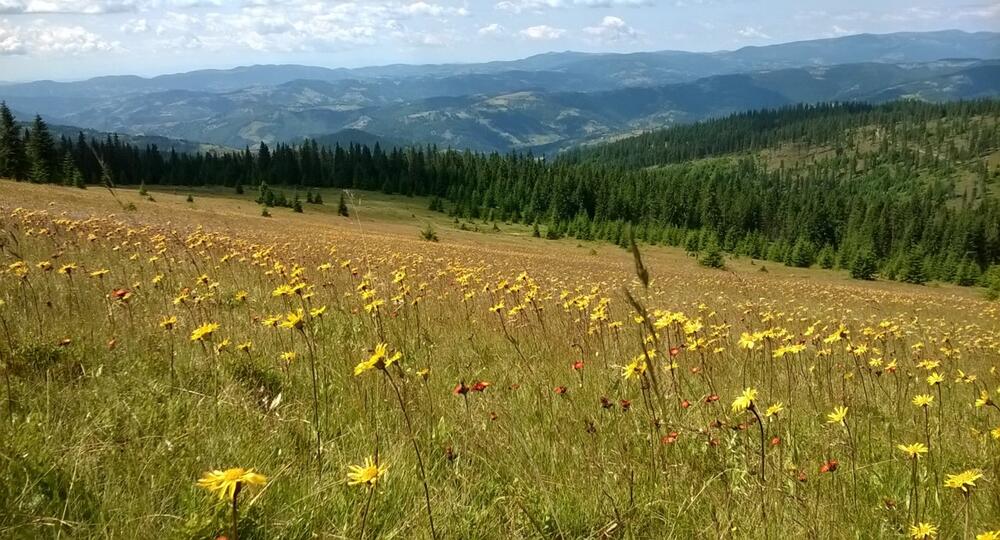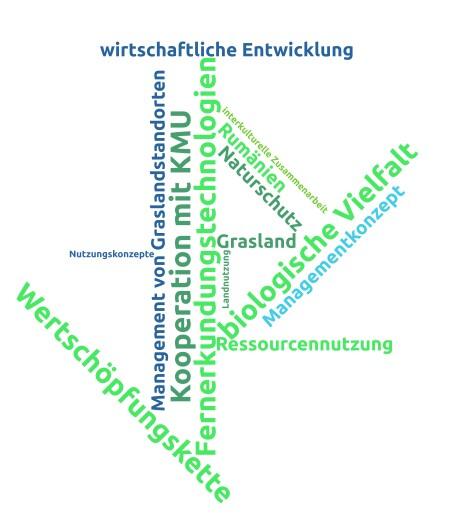Protection of species-rich grasslands in the Apuseni Mountains (Romania) through sustainable use of Arnica montana
International project funding
Subject and goals of the project
The high biodiversity of the nutrient-poor grasslands in Romania's Apuseni Mountains is the result of traditional land use that has lasted for centuries. Many rare species such as Arnica montana still occur here in large populations. Previous utilization concepts have focused on the flowers of Arnica montana, which are collected, dried, and marketed to European natural remedy manufacturers. However, the current management concept is in jeopardy because
- maps showing the distribution of nutrient-poor grassland in the project area are missing,
- the identification of areas suitable for Arnica harvesting needs to be made more efficient, and
- there is a lack of appropriate technology to maintain oligotrophic grasslands, resulting in areas that fall fallow and can no longer be managed.
Against this background, the aim of the project is to identify species-rich grasslands in the Apuseni Mountains using modern remote sensing technologies (drones) and to use this technology to develop a monitoring system for the target species Arnica montana. Modern mulching/mowing technology will be procured for the management of fallow areas and its application will be tested with local farmers.
Innovation and exemplary nature of the project
The project demonstrates an exemplary solution for the economic development of the Apuseni region while preserving the biodiversity of the grassland that has grown over centuries. The drone-based methods for identifying and assessing the occurrence of the target species are innovative. The image-based methods can also be used to determine vegetation height and thus estimate land maintenance requirements.
The use of a mulch hydro-mower, a technology new to the Apuseni Mountains, will be used as an example on defined study and control plots to demonstrate management results and to train local farmers in the use of the technology. Mulching is essentially used to keep concealed areas open.
The intercultural cooperation includes both the processing of methodological and content-related research questions at the universities in Freiburg and Cluj Napoca (Romania) and the involvement of land users on site to test individual components of grassland management.
Special aspects of the project
The conditions for a sustainable impact of the project are favorable. The project partner BIOFLORA APUSENI S.R.L. has experience in the management of grassland sites with the aim of collecting and sustainably marketing medicinal plants. In this context, a cooperation with the Weleda company in Germany was already established before the start of the project, which will be further developed. Know-how for efficient mapping of Arnica stands with the help of drones is to be built up at the Department of Grassland Management at the University of Cluj Napoca with support from Freiburg. It is likely that other medicinal plants can also be detected with this technology and included in the management concept.
Funding subject: Nature conservation and sustainable use of nature in cultural landscapes and protected areas
Cooperation partners:
- BIOFLORA APUSENI S.R.L., Sancel, Romania
- Albert Ludwig University, Freiburg, Germany
- University for Agriculture and Veterinary Medicine, Cluj Napoca, Romania
Location: Apuseni Mountains (part of the Western Romanian Carpathians)
Funding period: May 2021 to April 2024
Project costs: Total volume: 244 615 Euro, DBU funding: 184 986 Euro
DBU-AZ: 35006
Note: Translation of the German version with DeepL
Last updated: 16.11.2021



